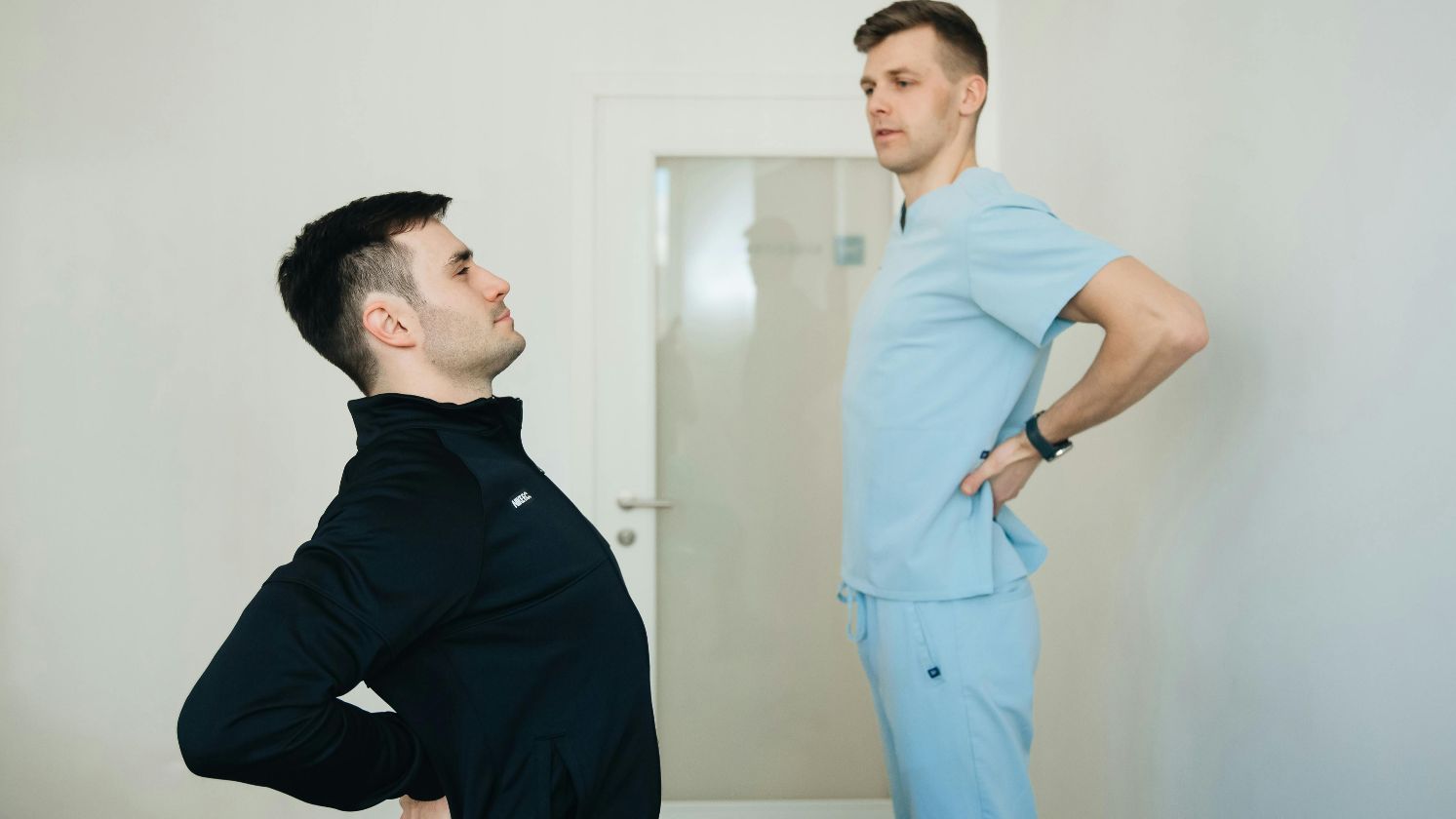What's Causing Your Back Pain?
Back pain doesn't always come crashing in. Sometimes, it's a nagging nuisance that starts to develop without a clear reason. One moment, you're fine; the next, you're wincing from the pain and discomfort. So, spotting the cause early can make all the difference in staying pain-free and doing the things you love to do. Let's dive into 20 common causes of back pain you should know about.
1. Poor Posture
Slouching over phones, leaning toward screens—bad posture isn't just common; it's relentless. Spines aren't built for hours of hunching. Over time, the imbalance strains muscles, compresses discs, and makes every movement feel heavier than it should.
 Christina @ wocintechchat.com on Unsplash
Christina @ wocintechchat.com on Unsplash
2. Herniated Discs
Discs between spinal bones act like shock absorbers, so when one slips or ruptures, nearby nerves can scream in protest. The result? Sharp pain, numbness, and even weakness in arms or legs, depending on where the rupture occurs.
3. Muscle Strain
One awkward lift. One twist too far. Muscle strains come on fast and linger longer than expected. Even everyday actions like reaching into the backseat can spark that all-too-familiar twinge in your lower back.
4. Osteoarthritis
Age brings wisdom, sure, but it also brings osteoarthritis. This condition erodes cartilage in spinal joints, leading to stiffness, reduced flexibility, and pain that shows up when moving or just standing still for too long.
5. Spinal Stenosis
Think of nerves being slowly crowded out in a narrow hallway. Spinal stenosis compresses the spinal canal, decreasing space for nerves. Discomfort may grow gradually, starting as tingling and then shifting to pain or even numbness.
 Photo By: Kaboompics.com on Pexels
Photo By: Kaboompics.com on Pexels
6. Sciatica
When your sciatic nerve gets pinched, it makes sure you notice. That burning, shooting pain runs down one side and throws off everything—sitting, walking, even lying down feels off until the pressure lets up.
 www.scientificanimations.com/ on Wikimedia
www.scientificanimations.com/ on Wikimedia
7. Sedentary Habits
Sitting on a chair seems harmless. Hours later, your spine disagrees. Lack of movement weakens the core muscles that stabilize your back. It's less about laziness and more about chronic underuse of your limbs—and the consequences sneak up slowly.
8. Obesity
Carrying extra pounds relentlessly stresses spinal structures. The lower back often bears the brunt, especially when abdominal muscles aren't strong enough to help. Eventually, back pain shows up once the spine can't keep up with the pressure anymore.
9. Degenerative Disc Disease
Discs lose hydration and flexibility over time, reducing their ability to cushion movement. As this degeneration progresses, vertebrae may rub against each other, which triggers inflammation, stiffness, and pain that gradually shifts from occasional to constant.
 yerling villalobos on Unsplash
yerling villalobos on Unsplash
10. Scoliosis
When the spine curves sideways, your body’s balance suffers. Muscles compensate, joints strain, and posture becomes uneven. Some cases are subtle, but others? They visibly twist the body's symmetry. All these conditions put unusual stress on the back.
11. Pregnancy
Growing a baby means shifting weight, changing posture, and loosening ligaments. This biological balancing act leaves many women aching by the third trimester. And for some, the discomfort lasts well beyond delivery.
12. Kidney Stones
Pain from kidney stones doesn't always stay where you'd expect. In fact, sharp stabs in the lower back can radiate from the kidneys, especially on one side. It mimics back pain but hits harder and more suddenly.
13. Ankylosing Spondylitis
This autoimmune disease affects the spine and sacroiliac joints. As inflammation builds, stiffness increases. In severe cases, vertebrae fuse completely. Pain tends to worsen after rest, and common treatments can offer some relief. However, a few people still continue to struggle.
14. Osteoporosis
Osteoporosis causes bones in the spine to grow thinner and weaker. Even small fractures can occur silently until sudden pain announces a collapse. Over time, vertebrae may compress inward, which can change posture and also reduce height.
 James Heilman, MD on Wikimedia
James Heilman, MD on Wikimedia
15. Smoking
Nicotine reduces blood flow to spinal discs. This makes it harder for the spine to repair and hydrate. Smokers are also more prone to chronic coughing. It can further aggravate your spinal structure through repeated pressure.
16. Lifting Mistakes
Did you ever pick something up and feel that twinge? Backs aren't built to do the heavy lifting solo. Twisting or bending while lifting can really mess with your spine. So, how do you avoid that? By lifting things up without awkward movements while maintaining the right form. It saves the back more often than people think.
17. Heavy Backpacks
Kids also suffer. Overloaded school bags may seem harmless, but they tug unevenly on growing spines. Posture suffers, shoulders round forward, and the back learns bad habits before adulthood even begins. It sets the stage for long-term discomfort.
18. Bad Mattresses
Are you waking up sore? Your mattress might be the problem. Support that's too soft or too firm can misalign your spine for hours every night. Morning pain often begins when your mattress stops supporting you, and it keeps on increasing until you pick the right one for yourself.
 Lotus Design N Print on Unsplash
Lotus Design N Print on Unsplash
19. Stress
Tension builds in the mind. However, it can often land in the back. Muscles gradually tighten, and breathing becomes shallow. As the body stays in this defensive state, spinal support weakens, and pain slowly takes root in unexpected ways.
20. Infections And Tumors
Not every backache is related to the physical mistakes you make. Infections, tumors, or growths near the spine can also cause sudden or escalating pain. These are uncommon, but when back pain refuses to follow the rules, consider these possible reasons and schedule a check-up.
KEEP ON READING

20 Gentle Low-Impact Exercises Perfect For Seniors

20 Exercises That Help You Lose Belly Fat

20 Common Causes Of Back Pain To Be Aware Of



















